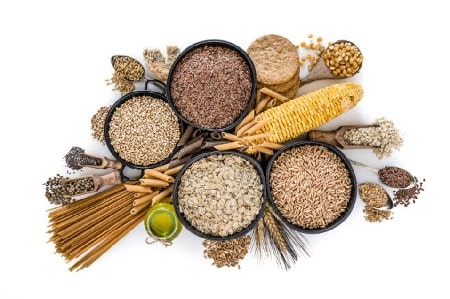Introduction
In today’s busy world, maintaining a healthy diet is an important part of overall health and well-being. In addition, the variety of foods can often surprise people challenging them to choose a diet that fits their lifestyle. Healthy eating is a dynamic and individual journey tailored to individual needs and preferences, not a one-size-fits-all solution.
Individuals can discover a suitable, well-being-enhancing diet that aligns with their lifestyle and goals. The objectives may include weight management, increased energy, or addressing specific health issues. A healthy eating plan involves diversifying food groups like fruits, vegetables, nuts, whole grains, and lean proteins. Additionally, it entails minimizing saturated fats, elevating healthy fats, and avoiding refined grains.
Equally important is reducing added sugars, maintaining hydration with water, practicing moderation in light meals, and planning meals. Individual dietary needs may vary, especially due to factors such as allergies or medical conditions. Therefore, it is recommended to seek help from a physician or registered dietitian. A healthy diet, supplemented by regular physical activity, plays a key role in promoting overall well-being.
In the following sections of this article, we will explore the types of healthy diets and healthy eating styles available today. Importantly, these diets affect not only internal health but also external health, including skin, hair, and overall beauty. Understanding the complex relationship between diet and beauty can pave the way for vibrant skin and improved overall well-being. Ultimately, it helps find a healthier way to eat both desirable and enjoyable in a world full of dietary choices.
Vegan Diet – A Healthy Diet

Plant-based diets and vegan diets share a common emphasis on plant-derived foods and offer health and environmental benefits. However, they differ in scope and strictness. Specifically, a plant-based diet is a broader term encompassing variations like vegetarianism, which may include dairy and eggs. On the other hand, a vegan diet is a more specific subset that strictly excludes all animal products, including honey, eggs, and other animal-derived ingredients.
Both diets have gained popularity due to motivations tied to health, environmental concerns, and ethics. Notably, they bring health benefits like reduced saturated fat intake and a lowered risk of heart disease. Individuals choose these dietary approaches based on personal values, dietary preferences, and health objectives.
Additionally, beyond health benefits, these diets may provide beauty advantages by highlighting plant-based foods rich in vitamins, minerals, and antioxidants. Consequently, this can promote clear skin, reduce inflammation, and enhance a natural glow. Furthermore, the high fiber content also supports healthy digestion and aids in weight management.
Paleo Diet

The Paleo Diet, an abbreviation for the Paleolithic Diet, represents a dietary approach that seeks to mimic the eating habits of our distant ancestors from the Paleolithic era, which spanned from about 2.5 million to 10,000 years ago. Moreover, it replicates the dietary practices of ancient ancestors who inhabited the Paleolithic era. The key ingredients of this diet are whole, unprocessed foods like lean meats, fish, fruits, vegetables, nuts, and seeds. Whereas, it excludes modern foods such as grains, dairy, refined sugars, and processed items.
Supporters of this diet consider it to be a very healthy diet. They assert that it can lead to weight loss, improved blood sugar control, and reduced inflammation. On the other hand, critics voice concerns about nutrient deficiencies, especially in calcium and vitamin D. This diet is regarded as a means to prioritize whole, unprocessed foods and to endorse a nutrient-dense, balanced eating approach. However, individuals contemplating it should meticulously plan their meals to ensure they fulfill all their nutritional needs.
Mediterranean Diet

The Mediterranean Diet is inspired by the traditional eating habits of countries bordering the Mediterranean Sea, such as Greece, Italy, and Spain. It emphasizes the inclusion of whole, unprocessed foods, fruits, vegetables, whole grains, legumes, and healthy fats like olive oil and nuts. Additionally, this diet incorporates moderate amounts of lean protein primarily sourced from fish, poultry, and beans It also limits red meat consumption.
Rich in antioxidants, vitamins, and minerals, the Mediterranean Diet reduces the risk of heart disease, diabetes, and certain cancers. Moreover, it encourages regular physical activity and social interactions as integral components of the Mediterranean lifestyle. The seasonal ingredients and the occasional inclusion of red wine make this diet a sustainable and enjoyable approach to eating. It emphasizes a balanced, culturally rooted perspective on food and considered to be a healthy diet.
Gluten-Free Diet

A gluten-free diet involves avoiding a protein called gluten, which is commonly found in wheat, barley, and rye. Notably, people with celiac disease typically follow this diet because gluten can harm their small intestine. Additionally, some individuals who are sensitive to gluten or have wheat allergies also choose this diet. When you’re on a gluten-free diet, you limit your food choices to items that naturally lack gluten, such as fruits, vegetables, lean meats, beans, and gluten-free grains like rice and quinoa. Furthermore, you can also find gluten-free versions of products like bread and pasta.
This diet can benefit those with gluten-related skin conditions like dermatitis herpetiformis. However, it’s essential to ensure a balanced intake of nutrients. Interestingly, some people adopt this diet because they believe it aids digestion or promotes overall health. However, it’s important to be cautious as it may lack sufficient fiber and specific vitamins found in whole grains. If you’re considering going gluten-free, it’s advisable to consult with a doctor or dietitian first. Their advice ensures that you’re meeting all your nutritional requirements.
Keto Diet – A Healthy Diet for Weight Loss

The ketogenic diet, often known as the keto diet is a low-carb, high-fat eating plan. It is designed to induce ketosis, where the body burns fat for energy instead of carbs. It involves a special eating plan that differs from the typical diet. Firstly, it focuses on reducing carbohydrate intake while increasing the consumption of healthy fats. Specifically, this diet is rich in healthy fats like avocados, nuts, and oils. It also includes moderate amounts of protein from sources such as meat, fish, and chicken.
Carbohydrate intake is limited, primarily coming from non-starchy vegetables. With minimal carbohydrate intake, your body undergoes a metabolic shift, relying on fats producing energy in the molecular form called ketones. The keto diet has gained popularity for its potential to aid in weight loss and regulate blood sugar levels. Moreover, some healthcare professionals also use it to manage conditions like epilepsy. However, it can be challenging to adhere to this diet. Because it requires careful monitoring of carbohydrate intake and can result in initial side effects known as the “keto flu”. Consult a healthcare provider to ensure its suitability for your specific health goals and needs without causing any adverse effects.
Balanced and Varied Diet

A balanced and varied diet involves eating a wide range of different foods in the right amounts for good health. Firstly, this approach ensures that you provide your body with all the essential nutrients it requires for optimal functioning. Specifically, it includes carbs for energy, proteins for muscle repair, healthy fats for cell function, and vitamins/minerals for body processes.
This diet includes fruits, vegetables, whole grains, lean proteins, and healthy fats from sources like avocados and nuts. This diverse selection of foods ensures proper nutrition. Additionally, it encourages moderation in the consumption of sugary and processed foods. This diet supports overall health, manages weight effectively, and reduces the risk of chronic diseases.
Combined with a healthy diet, adequate hydration, regular exercise, and proper sleep are also essential in maintaining a healthy life. Furthermore, customizing this diet to suit your specific dietary needs, preferences, and lifestyle is essential. Therefore, it’s advisable to seek guidance from healthcare professionals or registered dietitians to ensure nutritional adequacy.
Intermittent Fasting Method as a Healthy Diet
Intermittent fasting represents a distinctive approach to a healthy diet, emphasizing when to eat rather than what to eat. It involves cycles of eating and fasting, with various methods to choose from.
Common fasting methods include the 16/8 method, the 5:2 method, and the eat-stop-eat method. The 16/8 method is where individuals fast for 16 hours and eat within an 8-hour window. The 5:2 method involves normal eating for five days and significant calorie reduction for two non-consecutive days. Finally, the eat-stop-eat method requires a full 24-hour fast once or twice weekly.
Supporters of intermittent fasting believe that it offers various health benefits. The benefits include weight loss, insulin sensitivity improvement, inflammation reduction, and enhanced metabolic health. Moreover, it may also support heart health and contribute to longevity. However, intermittent fasting should be practiced with caution. It may not be suitable for everyone, particularly those with specific medical conditions or dietary needs. It’s adaptable to various lifestyles, offering flexibility for improved health without strict rules.
Conclusion
Choosing the right healthy diet aligns with your health goals and lifestyle, making it a personal journey. Various options like Mediterranean, plant-based, keto, paleo, or intermittent fasting diets offer benefits, but the key is finding one you can enjoy long-term. Consulting with a healthcare provider or dietitian ensures your chosen diet supports your well-being. Regardless of the diet you choose, good nutrition significantly impacts beauty and overall well-being. Prioritizing nutrient-dense whole foods, staying hydrated, exercising regularly, and practicing self-care ensures you maintain a healthy and radiant appearance that reflects your vitality. The world of healthy diets offers diverse options for your specific needs and preferences. Find the right one essential for a healthier, happier you.
Eat Healthy Live Healthy!


